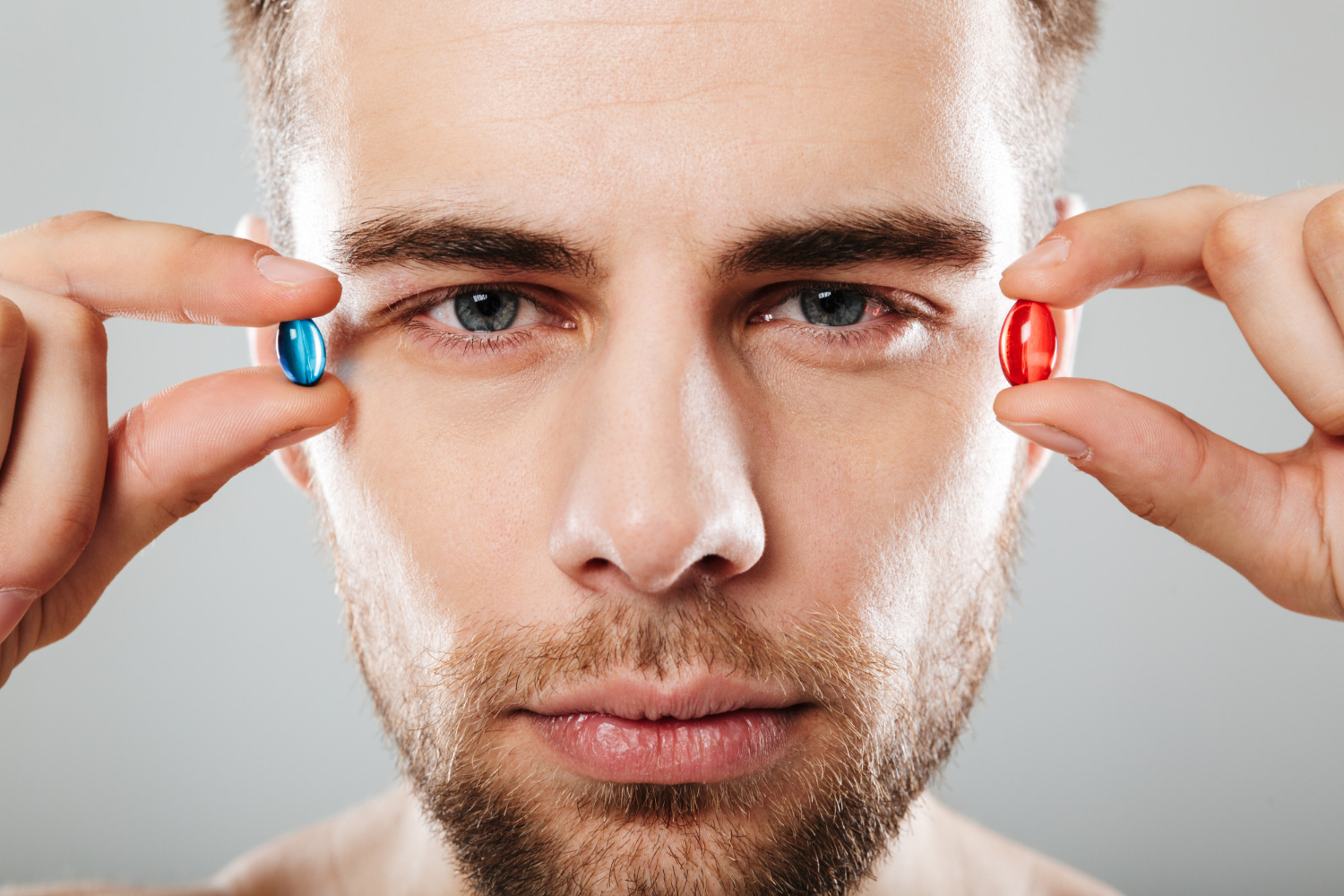
Infertility rates are rising globally; therefore, men have been looking for natural ways to increase their fertility. Many factors affect sperm quality and count, which include lifestyle, nutrition, and genetics. However, recent studies have found that minerals and vitamins might help with this process. Nutritional supplements were mentioned in medical literature as one of the most accessible and easiest ways to enhance fertility. But the big question is, which supplements are most effective, and how should you take them? In this review, I present the top-rated male fertility supplements; I will also explain what each one can do for you to enhance your fertility, based on scientific findings.
Factors Affecting Decreased Fertility in Men
- Nutrition
Processed food consumption, nutritional deficiencies, and alcohol and tobacco consumption can reduce sperm quality. For example, diets high in saturated fats and sugars lower sperm production, while foods high in antioxidants, such as fresh fruits and vegetables, may help improve sperm function.
- Lifestyle
Exercising on a regular basis improves sperm quality in men. Too much excessive exercise, on the other hand, might have the opposite effect when testosterone is lowered and it results in lower fertility too. Stress management is among the ways to maintain one’s reproductive health. Chronic stress interferes with the hormone production responsible for the development of sperm.
- Medical conditions and diseases
One of such diseases that impairs fertility in men is varicocele; it’s the swelling of the veins around the testicles, which may affect sperm production and quality. Also, hormonal diseases like hypogonadism reduce testosterone production, which leads to reduced libido and fertility. Genital infections are other factors that reduce fertility. Some infections directly damage the tissues of sperm production or block the ducts that carry sperm. Genetic diseases also can promote this process.
- Environmental factors
Exposure to some chemicals and toxins in the environment can dramatically reduce fertility. For instance, toxins in pesticides and industrial chemicals reduce sperm count and motility. Prolonged exposure to intensive heat-for instance, regular sauna or hot tub use-can inhibit sperm production.

Vitamins and nutrients that impact male fertility
- Vitamin C
Vitamin C is a powerful antioxidant that would protect sperm from oxidative damage. Men with adequate intake of vitamin C have better enhancement in sperm count and motility. This vitamin would also improve the quality of the DNA of sperm, which again is an aspect of healthy fertility and normal carriage of pregnancy, evading early-stage miscarriages.
- Vitamin E
Vitamin E is also a potent antioxidant that can help improve the health of sperm. The vitamin can help in preventing damage to sperm caused by free radicals, hence promoting increased motility and quality. Studies have found the combination of vitamin E and vitamin C to have positive influences on sperm quality and consequently improved fertility rates.
- Zinc
Among the many important minerals involved in the production of sperm in males, zinc has been highlighted as the foremost controller of testosterone. Lacking this very vital mineral may also cause low counts of sperm that are characterized by possessing low motility. The fact that it has affected cell division hence DNA synthesis, zinc is said to be a necessity in providing the body with healthy sperms. Besides, zinc is implicated in immune system modulation and may confer protection against inflammation and infection that may cause reproductive impairment.
- Selenium
Another important mineral for male reproductive health is selenium. It is a mineral that helps in boosting sperm motility and plays an effective role in reducing oxidative stress. Research has shown that men with adequate levels of selenium in their body show healthier sperm and more mobility compared to others who have a deficiency of selenium. Also, selenium can prevent sperm quality from declining with age.
- Vitamin D
Vitamin D is an important factor in the production and regulation of the testosterone hormone. Men with higher levels of vitamin D have higher sperm motility and overall better quality of sperm. Also, vitamin D deficiency may be linked to low libido and hormonal disorders.
- L-Carnitine
L-Carnitine is an amino acid involved in energy production within the cells. In men, L-Carnitine enhances sperm energy and thereby increases their mobility. This substance promotes more efficient use of energy sources by the sperm and the greater ability of the latter to move towards the egg. Research has documented that supplements with L-Carnitine contribute to the improvement of sperm quality, increase sperm count and motility.
- B vitamins (especially B9 and B12)
A lack of B vitamins can lower sperm count and also lead to genetic defects in them. This vitamin is highly important for DNA production and cell division, hence it plays a role in the production, growth, and increased mobility of sperm cells.
- Omega-3
The effects of Omega-3 fatty acids affect the structure and function of sperm directly. These help increase the motility and fluidity of sperm membranes, which enable sperm to move better and reach the egg. Omega-3 promotes quality and density in sperm, hence increasing the chances of fertility. Omega-3 intake can also impede any damage through inflammation and maintain general reproductive health.

Supplementation – Key Facts
Supplements taken to enhance fertility in men can be very effective; however, there are some important points that one should note in order to use them correctly and avoid possible side effects. Following are some key points about taking fertility supplements:
- Medical advice
Amongst the most crucial points before starting with any nutritional supplement is consultation with a specialist. The doctors can identify the type and dosage of supplements that would be appropriate according to the physical condition and tests of the person. In addition, some supplements interact with other medications, and thus consulting a doctor will avoid serious problems. Supplement intake on one’s own may not only be not effective but also be dangerous in certain cases.
- Dosage
One of the major issues about supplement intake is dosage. Many people think that having more supplements could yield better results, but this thought is very wrong. For instance, having too much vitamin E or selenium could give a person toxic problems and even damage the tissues in the body. Every nutrient has an allowable dose per day and this should be strictly adhered to. For instance, it is recommended that men take up to 15 mg of vitamin E and 50 mcg of selenium daily.
- Duration of use
Positive results from fertility supplements usually take time, and this time may range from a few weeks to a few months. In that case, expecting instant and rapid results from consuming supplements is pretty unrealistic. In most cases, men are suggested to continue supplementation for at least 3 to 6 months before visible effects on sperm quality can be seen.
- Possible side effects
Some supplements may have side effects. For instance, taking an overdose of zinc may cause some stomach upsets such as nausea, diarrhea, and vomiting. The same case applies when a very high amount of vitamin C is taken; this causes stomach discomfort and, in extreme cases, kidney stones. Therefore, supplements must always be consumed as advised by your physician and in recommended dosages.
- Supplements cannot work on their own
While supplements are good as an adjunct to improve fertility, they cannot help solve all problems. Making healthy lifestyle changes, including a good diet, proper exercise, stress management, and avoiding unhealthy habits like smoking and alcohol, form a major part of improving fertility. Supplements should be used as part of a comprehensive approach.
Final Thoughts
In the end, men with fertility problems should adopt an integrated behavior in terms of nutrition, exercise, and stress, besides supplementation. Following the indications of the previous list and adding proper supplementation will decisively increase your chances of having a child while taking care of your health. At Jam Clinic, we’re ready to assist you for your health, considering top-rated nutritionists and vitamin therapists along with the latest analytical technologies.
References
Male Infertility and Management
11 Best Fertility Supplements, According to a Dietitian
Dietary Supplements for Male Infertility: A Critical Evaluation of Their Composition








No comment yet, add your voice below!